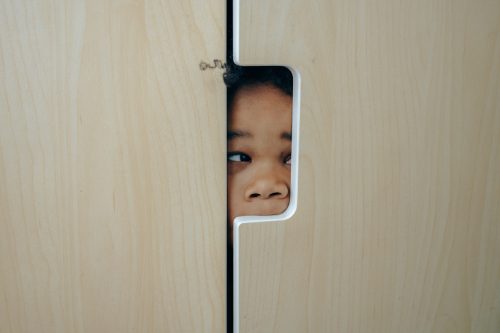Children within the autism spectrum experience stressors and problems like other children and adults. But sometimes, these indicate mental health issues. Mental health counselors can help your kids deal with and face these problems. They will also teach your child healthy coping mechanisms to help them manage their mental health issues.
To learn more about how mental health counselors can help, we listed these common mental health problems with you. We will also share with you the different ways that professionals work with them.
To learn more about how mental health counselors can help, we listed the following common mental health problems for you. We will also share with you the different ways that professionals work with them.
Specific Phobias

There are several types of anxiety disorders affecting children with autism. Research shows that about 40 percent of people with this disorder are affected by specific phobias. This disorder is characterized by an irrational and overwhelming fear of objects or situations. Usually, there is no real danger associated with the distress. However, they still make your child experience anxiety and, sometimes, avoidance.
The other symptoms of specific phobias include:
- Immediate feeling of intense panic and fear when facing or thinking about the source of the phobia.
- Increasing anxiety when near the object of fear.
- Inability to perform when facing the object of fear
- Physical symptoms like excessive sweating, tightness of the chest, and difficulty breathing
- Tantrums, clinginess, and crying
If you notice these signs, it might be helpful for you to take your child to a mental health counselor. They can help your kid process their feelings and understand where these fears come from. Cognitive-behavioral therapy and exposure therapy are treatment methods used to deal with this problem. Counselors can also teach parents how to deal with panic attacks among their children.
Generalized Anxiety Disorder

Generalized anxiety disorder is another anxiety disorder common to children with autism. It manifests through excessive worrying about everyday events and experiences. Often the worries and stress are disproportionate to the actual causes of these anxieties.
Rules and routines help children with autism. However, the threat and worries from their anxieties may feel too much. It may even disrupt their daily functions. Unlike specific phobias, there is no apparent reason for the troubling thoughts and feelings. It is also sometimes unclear why the anxiety attacks occur. These can be troubling for your kid, especially if they also have trouble expressing themselves.
Sometimes, it is not easy to recognize generalized anxiety disorder. Anxiety often manifests in uncommon ways. Here are some symptoms that you should look out for:
- Restlessness
- Fatigue and sleep disturbance
- Irritability
- Muscle tension
A mental health counselor will help your child voice and understand the troubling thoughts and emotions. They can use cognitive-behavioral therapy to modify these consuming thoughts and behaviors. Mental health professionals can also prescribe medications and other kinds of treatments for autism and other anxiety disorders. This is for managing the effects of generalized anxiety disorder.
Social Anxiety Disorder
People with autism face social challenges daily. Some of them learn scripts to say in certain events and settings. Yet, they still have trouble gauging other complex social interactions. Children with this condition also commonly experience another anxiety disorder called social anxiety disorder.
People with social anxiety disorders may share similar symptoms with those on the autism spectrum. An example of this is avoidance of stimuli. However, we need to understand that it differs from case to case. An example would be Asperger’s syndrome, which is still under the autism spectrum. The difference is that the diagnosis of Asperger’s does not include anxiety.
Social anxiety disorder gives irrational feelings of fear and worries in social situations. Children affected with this condition become uncomfortable with other people watching and judging them. They often think that their actions are embarrassing for themselves and others. This adds to their stress since they already find it hard to understand and interpret social cues.
Mental health counselors can help your children with their social interactions. One method is social skills training. This kind of therapy teaches patients to learn and practice specific skills in a controlled environment. Therapists break down social practices into steps, so children can better understand them.
Depression

A meta-analysis of studies about depression in people in the spectrum suggests that they are four times more likely to suffer from this condition. However, it is harder to notice the symptoms among children with autism. This is because they show minimal changes in facial emotion.
Children with autism may also find it difficult to express their emotions. Sometimes, we may not even recognize and know if they are thinking about hurting themselves. So, it is essential to familiarize ourselves with the other symptoms of depression. These include:
- Sudden changes in appetite and sleep
- Sudden loss of weight
- Decreased motivation in doing activities they typically enjoy
- Overfatigue
- Agitation, inattentiveness, and anxiety
Sometimes, depression also comes from anxiety and other feelings that our young ones experience outside the home. For example, bullying in schools may result in trauma, social isolation, and loneliness. Unfortunately, we cannot constantly monitor our kids’ activities outside. But we can always reach out to their peers or teachers and mental health counselors if we notice the symptoms.
Mental health counselors can provide social support to your child. They may also use a modified version of cognitive behavioral therapy to assist your young one. This means using visual aids to explain abstract concepts and adopting a predictable routine during treatment.
Children with autism struggle more because of the challenges that they face that others do not deal with. As parents, it is our role to help them deal with these additional worries. Fortunately, we are not alone in caring for our young ones. Mental health counselors can help with the problems that our children face. They will also prepare us for how we can help at home when our children need our help.
